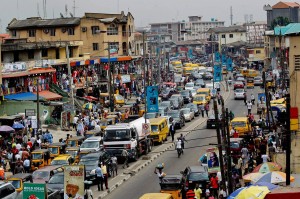By Matina Stevis , The Wall Street
NAIROBI—Plunging oil prices, sluggish growth in the developed world and a slowdown in China’s pace of industrialization will bring down sub-Saharan Africa’s growth rate this year to its lowest in two decades, the World Bank said Monday.

Economic output is expected to grow by 4% across the region in 2015, the World Bank said in its biannual economy report “Africa Pulse,” significantly below the historic average of 4.4%. While that is still well above the global economy average, seen by the World Bank at 2.9% for 2015, the decline highlights how vulnerable the world’s second-fastest growing region is, both from trouble at home and abroad. Growth will pick up in sub-Saharan Africa in 2016 to reach 4.5%, but only “gradually,” the report said. And risks are on the downside.
“On the domestic front, a new generation of violent conflict poses security risks with the potential to undermine development gains; and the Ebola epidemic serves to highlight the pre-existing weaknesses in the health systems of much of the continent and the potential for systemic risks from communicable diseases,” the report said. It added that “on the external front, a sharper-than-expected slowdown in China, a further decline in oil prices, and a sudden deterioration in global liquidity conditions are the main risks.”
Some African nations are feeling the pain a lot more. The report singles out Angola and the Republic of Congo as economies that are so reliant on oil exports they have nowhere to seek refuge in this phase of low global oil prices. Sub-Saharan Africa as a whole is a net exporter of oil and other commodities. The double-whammy of falling fuel prices and the end of the so-called “commodity super-cycle”–a period that started in 2000 marked by extraordinary demand for commodities fueled by China’s rapid expansion—are hitting the region.
Still, economies that are better-diversified and especially net oil importers, may even gain from this rut, most notably East Africa’s economic powerhouse, Kenya, and West Africa’s Senegal, the report said.
The immediate pressure to take action to stem the losses from the oil-price plunge has fallen on central banks—for example, in Nigeria and Angola central banks had to hike rates and take extraordinary actions to control their free-falling currencies.
Read more: Sub-Saharan Africa’s Economic Growth Rate to Stall in 2015
Source: WSJ


